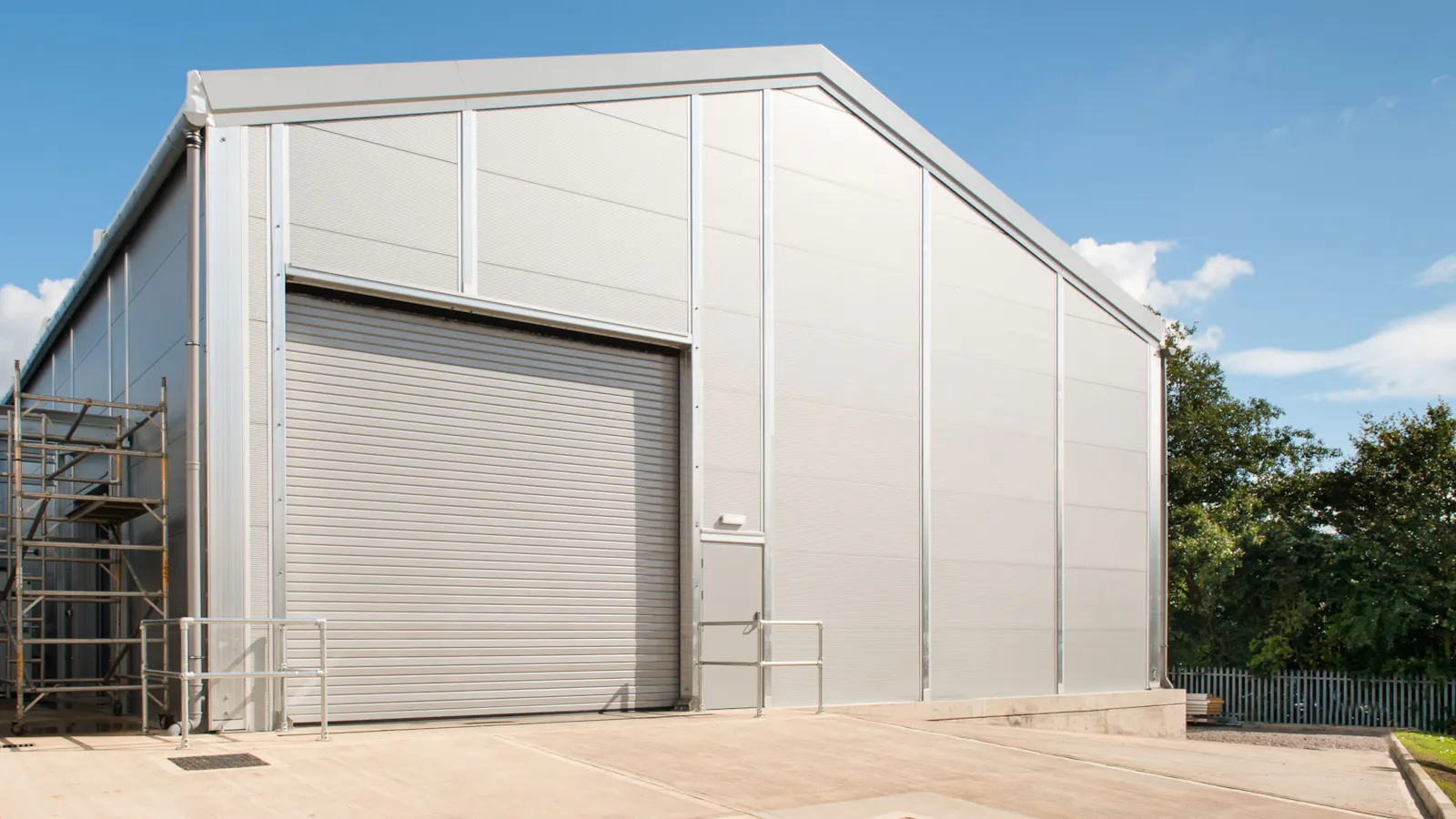
Industrial and Commercial
Prefabricated temporary warehouses & storage sheds
Our prefabricated temporary warehouses and storage sheds are designed to provide temporary storage solutions for various industries. These structures are typically made from prefabricated materials, such as steel or aluminum, and can be easily assembled on-site. They are ideal for use in situations where additional storage space is needed on a short-term basis, such as during periods of increased demand or for seasonal storage needs. The modular design of these structures allows for easy customization, making them suitable for a wide range of applications. Additionally, they are often more cost-effective and faster to install compared to traditional construction methods. Overall, our prefabricated temporary warehouses and storage sheds offer a flexible and efficient solution for businesses in need of additional storage space.
Temporary workshop & production buildings
Temporary workshop and production buildings are versatile structures designed to provide a flexible and efficient workspace for various industrial activities. These buildings are typically constructed using prefabricated materials, allowing for quick assembly and disassembly as needed. They are ideal for situations where temporary or mobile workspaces are required, such as during construction projects, events, or emergency situations. Temporary workshop and production buildings can be customized to accommodate specific production processes, equipment, and workflow requirements. They offer a cost-effective solution for businesses needing additional workspace on a short-term basis without the longterm commitment of traditional construction. These structures can be equipped with utilities, lighting, ventilation systems, and other necessary features to support a productive working environment. The modular design of temporary workshop and production buildings allows for easy scalability and reconfiguration to adapt to changing needs. They can be used as standalone units or integrated into existing facilities to expand production capacity quickly. Additionally, these buildings can be relocated to different sites, making them a practical solution for businesses with evolving operational requirements. Overall, temporary workshop and production buildings provide a convenient and customizable workspace solution that offers flexibility, mobility, and efficiency for a wide range of industrial applications.
Loading bay canopies & warehouse canopies
Our loading bay canopies and warehouse canopies are designed to provide protection from the elements for loading and unloading areas, as well as for storage facilities. These canopies are typically made from materials such as steel, aluminum, or fabric, and can be customized to fit the specific needs of a facility. They are often installed over loading docks, truck docks, or other areas where materials are being loaded and unloaded, as well as over storage areas to protect goods from rain, snow, and other weather conditions. The canopies can be designed to be freestanding or attached to the building, and can be customized to fit the specific needs of the facility. They can also be equipped with features such as skylights, lighting, and ventilation systems to improve working conditions and increase productivity. Overall, Kiwi Modular Structures’ loading bay canopies and warehouse canopies provide a practical and cost-effective solution for protecting loading and storage areas from the elements, while also enhancing the functionality and efficiency of a facility.
Modular retail buildings, supermarkets & public facilities
Our modular retail buildings, supermarkets, and public facilities offer a flexible and efficient solution for various commercial and public needs. These buildings are constructed using prefabricated modules that are manufactured off-site and then assembled on location. This construction method allows for quicker installation, reduced construction time, and minimal disruption to the surrounding environment. Modular retail buildings can be customized to suit the specific requirements of retailers, providing a versatile space for showcasing products and serving customers. Supermarkets built using modular construction offer a cost-effective way to expand or establish new locations quickly, catering to the growing demand for convenient shopping experiences. Public facilities such as schools, healthcare centers, and government offices benefit from modular construction by enabling rapid deployment of essential services to communities in need. The design flexibility of modular buildings allows for creative architectural solutions while maintaining high-quality standards. These structures can incorporate sustainable features, energy-efficient systems, and modern amenities to enhance user experience and operational efficiency. Overall, modular retail buildings, supermarkets, and public facilities represent a modern approach to construction that prioritizes speed, costeffectiveness, and sustainability without compromising on quality or functionality.
Recycling buildings & waste processing Modular structures used as recycling and waste processing facilities offer a flexible and efficient solution for managing waste materials in a sustainable manner. These innovative buildings are constructed using prefabricated modules that can be easily assembled, disassembled, and relocated to different sites as needed. Modular recycling and waste processing facilities are designed to streamline the sorting, processing, and recycling of various waste streams, contributing to environmental conservation and resource recovery efforts. The modular design allows for scalability and customization to meet specific operational requirements and accommodate varying waste volumes.Overall, modular structures used as recycling and waste processing facilities represent a modern approach to waste management that emphasizes flexibility, efficiency, and sustainability. By leveraging modular construction techniques, these facilities can adapt to changing needs and contribute to a more circular economy by promoting resource recovery and reducing waste generation.